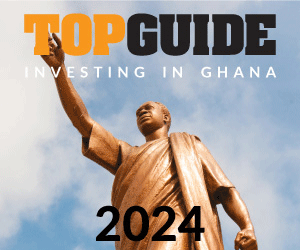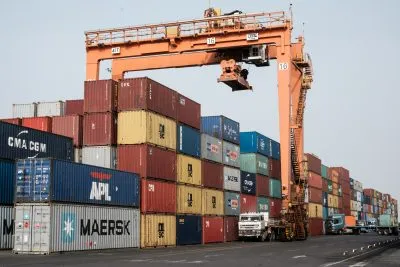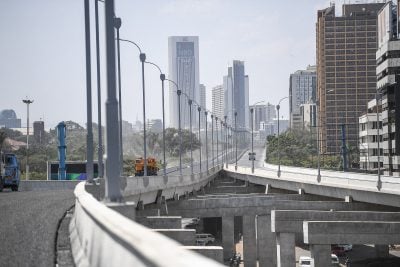Despite healthy growth rates and windfall revenues from oil, the Ghanaian economy has been stumbling and stuttering. An economics think-tank was recently convened to find how to fix the problems but for many observers, the answer is clear – overspending by the government. Report by Eric Kwame Amesimeku in Accra.
Dr Nii Moi Thompson, a local economist, once said some memorable words about the Ghanaian economy. “We are certainly on the move,” he remarked, but “we are doing so in circles.” Dr Thompson was a member of the economic advisory team convened by the current administration to find a lasting solution to the country’s cyclical economic problems.
President John Mahama has tried to sell the forum as a non-partisan attempt to find broad-based consensus on long-term path for the economy, Critics, however, see it as an admission by the government that it has run short of ideas and is now unsure of what steps to take. Others believe that the forum, recommendations from which will have only persuasive effect, is a cosmetic attempt by the government to divert attention from the real problems.
The difficulties the nation faces on the economic front have been long in the making. Missed targets on expenditure, a rising rate of inflation and a weakening national currency are some among other worrying macro-economic indications.
The country’s largest opposition party, the New Patriotic Party, has already announced that it will boycott the forum, blaming the late invitation to join it and its suspicion that the government is only seeking to legitimise austerity measures it has agreed with the International Monetary Fund.
For others, the forum is a step in the right direction and the first part of solving the puzzle – which is how is it that after sustained growth – peaking at an impressive 14.4% in 2011 – and the start of commercial oil production in 2010, the nation still finds itself barely able to pay its bills?
Ghana is acknowledged as one of the freest emerging economies and this should have been a magnet for investment and bolstering the economy through foreign capital. This has not happened. Perhaps it is the perceived laid-back nature of the people, reflected in the management of the economy, that has resulted in the present difficulties.
Indeed, the predicament that the country now faces can be traced to an inability to check expenditure, resulting in consistently huge fiscal deficits. The country’s current account deficit, according to the Bank of Ghana, was a whopping 12.30% of its GDP as at the end of 2013.
This reflects strong imports, low saving rates, high personal consumption rates as a percentage of disposable incomes, and, to a larger extent, high borrowing rates. One underlying cause of the deficit is the Single Spine Salary Scheme (SSSS) albatross that hangs uncomfortably around the neck of government.
Even before the implementation of this salary scheme, public expenditure was way above the regional sub-Saharan average. With its implementation, the nation now spends over 70% of its internally generated funds to pay the salaries of the less than 1% of its population working in the public sector.
Ghana’s debt-to-GDP ratio is forecast to reach 51.2% by the end of 2014, inching dangerously close to the 60% mark allowed for a lower-middle-income country like Ghana.
International rating agency Moody’s is concerned by the nation’s B1 credit rating. In a recent report, it states that Ghana’s rating of B1 negative outlook is constrained by the ongoing weakness in the government’s fiscal position due to spending overruns on the public-sector wage bill, high interest costs and the clearance of payment arrears. Domestic debt servicing costs in 2013 were almost 40% above the government’s budgeted level, and now consume 20% of government revenues.
The World Bank, for its part, reports that “headline inflation breached the monetary policy target of 9% ±2 for 2013. The consumer price inflation increased from 10.1% in January 2013 to reach 13.5% in December 2013 and 14.0% in February 2014. The rise was driven by the non-food inflation.”
In addition, the country has been bedevilled by severe shortages in its energy supply over the past two years. Again, falling commodity prices, especially for cocoa and gold, two of the leading export commodities, have shortened government’s hand and reduced its options.
Want to continue reading? Subscribe today.
You've read all your free articles for this month! Subscribe now to enjoy full access to our content.
Digital Monthly
£8.00 / month
Receive full unlimited access to our articles, opinions, podcasts and more.
Digital Yearly
£70.00 / year
Our best value offer - save £26 and gain access to all of our digital content for an entire year!
 Sign in with Google
Sign in with Google 




